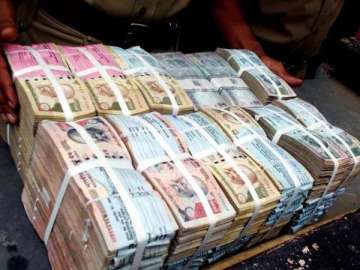Law enforcing agencies remain unaffected by demonetisation
Law enforcement agencies which possess a huge cache of old Rs 1,000 and Rs 500 notes, seized over the years as case property, have said that demonetisation will have no impact on them.

Law enforcement agencies including the Central Bureau of Investigation (CBI) and the Enforcement Directorate (ED), which possess a huge cache of old Rs 1,000 and Rs 500 notes, seized over the years as case property, have said that demonetisation will have no impact on them.
The senior officials of investigative agencies have said that the cash was "government accounted money" and could be deposited in respective bank accounts till December 30.
While the Enforcement Directorate (ED) and Delhi Police said they would have no problem in depositing the cash in the banks, the CBI preferred to reserve its comments by maintaining that the issue was "under examination".
Agencies like CBI and ED deal with huge cash amounts which are recovered or seized during raids and investigation of their cases. Both the agencies deal with high-stake financial frauds and ED is a specialised agency handling money laundering matters as well.
ED and Delhi Police said the confiscated cash lying with them would be deposited in their designated bank accounts by December 30, the deadline fixed by government, to deposit old currency notes.
On being asked about the impact of demonetisation on cash recovered by them during probe, Delhi Police's Joint Commissioner of Police (South-Western Range) Dipendra Pathak said the cash stored in the 'malkhana' (warehouse) would be deposited in the banks and it can be done till December 30 as the money is "government accounted".
He, however, said that though all the money is accounted for, it is difficult to tell the number of high denomination currency notes of Rs 1,000 and Rs 500.
He said police officials have been instructed to move concerned courts and seek direction on how to go ahead with each case where the case property involves cash.
Similarly, a senior ED official said the move has "not affected" the agency as according to procedure, the seized money is either deposited in the designated bank accounts or converted into fixed deposit receipts (FDRs).
When asked about the steps being taken by CBI to deal with the issue of demonetisation as the agency stores the currency notes seized during raids, an official said the matter was "under examination and we are not going to make any comment on it".
In his comments, Pathak said "the government has given time till December 30 and we can deposit the cash by then. The confiscated money can also be converted into FDRs through the concerned court's permission. It depends on case to case".
"Investigating Officers will move concerned courts and it will be decided only by the court as to how we have to go about it. I have already instructed the officials of my range to move courts on this issue," he said.
Pathak said that in cases where a person has been arrested red-handed with huge amount of cash, the police can take the photograph of original currency notes recovered from him to prove its case in the court.
"We can also take photograph of the currency notes and keep it with us and then get the notes deposited in banks," he said.
Asked if they have received any specific notification from the government regarding the process to be followed on seized cash of Rs 1,000 and Rs 500 denomination, Pathak said no separate notification has been received for the probe agencies. The ED officer said it was not in his knowledge.
On being asked about how ED is dealing with this issue, the official said, "demonetisation has not affected the ED at all. The government has given time till December 30. So if any cash is lying with the ED, it will be deposited in designated bank accounts and we do not need to get it exchanged.”
(With PTI inputs)